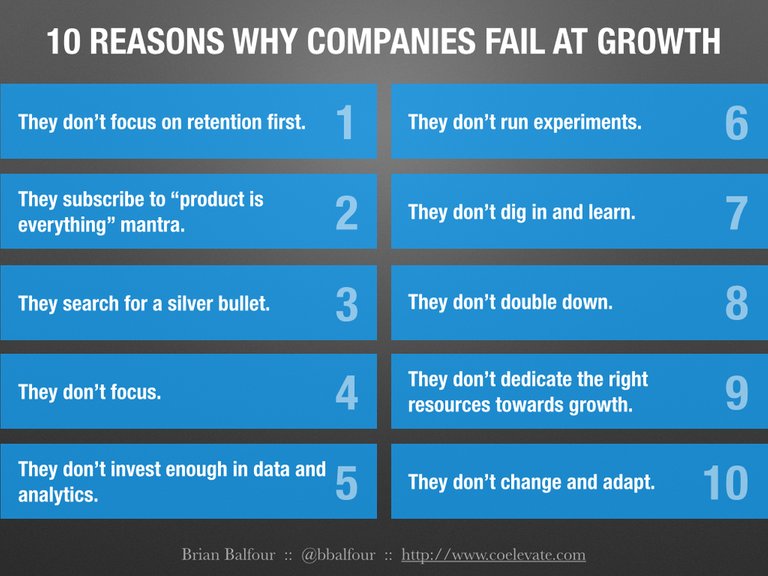Here are 10 motivating lessons you can gain from their trips to the best.

- Richard Branson: Dream huge
"Envisioning is one of humankind's most prominent blessings; it champions desire, goads development, prompts change, and drives the world forward," says Branson, in a blog entry distributed not long ago. "In a world without dreams there would be no workmanship, no enterprise, no moon getting, no female CEOs, and no social equality. "What a half-lived and terrible presence we would have."
"The advantages of imagining far exceed the apparent dangers, on the grounds that the benefit of envisioning isn't quite recently measured by the result, however the motivation that originates from excursion of accomplishing the fantasy."
- Mark Zuckerberg: make huge wagers

At the point when Facebook propelled the News Feed include in 2006, nonconformists requested that the long range interpersonal communication site come back to its before state. Zuckerberg is pleased with his group for not folding to prominent feeling.
"Something I'm most pleased with about Facebook is that we trust things can simply be better, and we're willing to influence enormous wagers in the event that we to figure it will help our group over the long haul," composes the CEO. "News Feed has been one of the huge wagers we've made in the previous 10 years that has molded our group and the entire web the most."
Richard Branson: Love the journey

When Branson wrote about the closing of the Virgin American brand, he celebrated the process of building the airline: "This was the ride and love of a lifetime. I feel very lucky to have been on it with all of you."Steve Jobs: Obsess over the details

Jobs had a reputation for being ruthless, but Kara Swisher, the executive editor of Recode, says that was a result of his obsession with perfection.
"People used to say he was heartless," says Swisher, talking to Tim Ferriss, author of "Tools of Titans" and "The 4-Hour Workweek," on his podcast, "The Tim Ferriss Show." She sees it differently: "I think he had too much heart. You know what I mean? He cared too much. He had so much heart that he just couldn't stand it when things weren't right."
"The benefits of dreaming far outweigh the perceived risks."
- Mark Zuckerberg: Apologize quickly when you mess up
After emotionally sensitive user content was removed by the Facebook content regulation algorithm earlier this year, Zuckerberg apologized publicly.
"We've seen this in misclassifying hate speech in political debates in both directions — taking down accounts and content that should be left up and leaving up content that was hateful and should be taken down," says Zuckerberg on his Facebook account. "This has been painful for me, because I often agree with those criticizing us that we're making mistakes."
Afterwards, leadership experts said the CEO's apology increased his credibility.
Steve Jobs, Bill Gates, Mark Zuckerberg, Richard Branson and John Paul DeJoria are all self-made billionaires.
- Bill Gates: Search out straightforward arrangements

"The hindrance to change isn't too small minding; it is excessively many-sided quality. To transform minding enthusiastically, we have to see an issue, see an answer, and see the effect. Be that as it may, intricacy hinders every one of the three stages," the fellow benefactor of Microsoft said in his 2007 Harvard initiation address.
"Discovering arrangements is fundamental in the event that we need to benefit as much as possible from our minding," Gates said. "On the off chance that we have clear and demonstrated answers whenever an association or individual asks, 'How might I enable?,' at that point we to can get activity and we can ensure that none of the minding on the planet is squandered. Be that as it may, unpredictability makes it difficult to check a way of activity for everybody who cares, and that makes it hard for their minding to issue."
- Steve Jobs: Focus is everything

"He had a concentration that was dissimilar to some other," says Tim Cook, as clarification for why Steve Jobs was the individual who affected him most. What enabled the incredible CEO of Apple to concentrate so eagerly was his capacity to organize, says Cook: "His reasoning was so unadulterated. He wasn't attempting to amplify his riches, or whatever else."
Steve Jobs, Bill Gates, Mark Zuckerberg, Richard Branson and John Paul DeJoria are all self-made billionaires.
Here are 10 inspiring lessons you can learn from their journeys to the top.
Richard Branson at the 2016 World Economic Forum in Davos, Switzerland.
David A. Grogan | CNBC
- Richard Branson: Dream big
"Dreaming is one of humanity's greatest gifts; it champions aspiration, spurs innovation, leads to change, and propels the world forward," says Branson, in a blog post published earlier this year. "In a world without dreams there would be no art, no adventure, no moon landing, no female CEOs, and no civil rights. "What a half-lived and tragic existence we would have."
"The benefits of dreaming far outweigh the perceived risks, because the value of dreaming isn't just measured by the outcome, but the inspiration that comes from journey of achieving the dream."
- Mark Zuckerberg: Be willing to make big bets
When Facebook launched the News Feed feature in 2006, protesters demanded that the social networking site return to its earlier state. Zuckerberg is proud of his team for not caving to popular opinion.
"One of the things I'm most proud of about Facebook is that we believe things can always be better, and we're willing to make big bets if we think it will help our community over the long term," writes the CEO. "News Feed has been one of the big bets we've made in the past 10 years that has shaped our community and the whole internet the most."
- Richard Branson: Love the journey
When Branson wrote about the closing of the Virgin American brand, he celebrated the process of building the airline: "This was the ride and love of a lifetime. I feel very lucky to have been on it with all of you."
- Steve Jobs: Obsess over the details
Jobs had a reputation for being ruthless, but Kara Swisher, the executive editor of Recode, says that was a result of his obsession with perfection.
"People used to say he was heartless," says Swisher, talking to Tim Ferriss, author of "Tools of Titans" and "The 4-Hour Workweek," on his podcast, "The Tim Ferriss Show." She sees it differently: "I think he had too much heart. You know what I mean? He cared too much. He had so much heart that he just couldn't stand it when things weren't right."
"The benefits of dreaming far outweigh the perceived risks." -Richard Branson, founder of Virgin Group
- Mark Zuckerberg: Apologize quickly when you mess up
After emotionally sensitive user content was removed by the Facebook content regulation algorithm earlier this year, Zuckerberg apologized publicly.
"We've seen this in misclassifying hate speech in political debates in both directions — taking down accounts and content that should be left up and leaving up content that was hateful and should be taken down," says Zuckerberg on his Facebook account. "This has been painful for me, because I often agree with those criticizing us that we're making mistakes."
Afterwards, leadership experts said the CEO's apology increased his credibility.
- Bill Gates: Seek out simple solutions
"The barrier to change is not too little caring; it is too much complexity. To turn caring into action, we need to see a problem, see a solution, and see the impact. But complexity blocks all three steps," the co-founder of Microsoft said in his 2007 Harvard commencement address.
"Finding solutions is essential if we want to make the most of our caring," Gates said. "If we have clear and proven answers anytime an organization or individual asks, 'How can I help?,' then we can get action and we can make sure that none of the caring in the world is wasted. But complexity makes it hard to mark a path of action for everyone who cares, and that makes it hard for their caring to matter."
- Steve Jobs: Focus is everything
"He had a focus that was unlike any other," says Tim Cook, as explanation for why Steve Jobs was the person who influenced him most. What allowed the legendary CEO of Apple to focus so intently was his ability to prioritize, says Cook: "His thinking was so pure. He wasn't trying to maximize his wealth, or anything else."
- John Paul DeJoria: Dispatch a business in an industry driven by rehash clients

The prime supporter of Paul Mitchell hair items and Patron Tequila is an extremely rich person now, however at an opportune time in his life, he was destitute and gathering jars for cash.
His best guidance for business visionaries is to construct a business in an industry that doesn't require heaps of influencing purchasers. Rather, he searches out items or administrations that will turn out to be a piece of a client's normal.
"You would prefer not to be in the offering business," DeJoria says. Rather, you need to be in the reorder business, where "your item or administration is so great, individuals need to reorder it or reuse it."
- Richard Branson: Be yourself

Branson has four youthful grandchildren, three little children and one infant, he says in a blog entry. "I've been contemplating the significance of life and about the things that I need to show them with the goal that they carry on with the most ideal life," Branson says.
The Virgin organizer and administrator says he continues returning to a quote from the youngsters' book "Glad Birthday to You!" by Dr. Seuss: "Today you will be You, that is more genuine than genuine. There is nobody alive who is You-er than You!"
Branson experiences dyslexia. He has needed to figure out how to grasp his uniqueness, as opposed to enable it to be an obstruction. "Yourself is dependably the best form of you — and acting naturally is among the best exhortation I have ever gotten," says Branson.
- Bill Gates: Give back
"My mom, who was loaded proudly the day I was conceded here, pressed constantly me to help out others," Gates told the Harvard graduating class. "A couple of days before my wedding, she facilitated a marriage occasion at which she read so anyone might hear a letter about marriage that she had kept in touch with Melinda. My mom was sick with tumor at the time, however she saw one greater chance to convey her message, and at the end of the letter she stated, 'From those to whom much is given, much is normal.'"
Entryways tuned in to his mom. He is one of the establishing individuals from The Giving Pledge, through which well off people focus on giving the greater part of their fortunes. He is additionally the prime supporter of the Bill and Melinda Gates Foundation, which attempts to lift kids out of extraordinary destitution.
Try not to miss:
@originalworks
To call @OriginalWorks, simply reply to any post with @originalworks or !originalworks in your message!
For more information, Click Here!
To enter this post into the daily RESTEEM contest, upvote this comment! The user with the most upvotes on their @OriginalWorks comment will win!Special thanks to @reggaemuffin for being a supporter! Vote him as a witness to help make Steemit a better place!